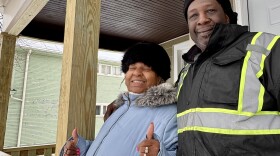The court and legislative decisions that determined Wisconsin’s April 7 election have been controversial, to say the least. Despite the coronavirus pandemic, the supreme courts at both the state and federal levels offered no leniency to voters. It should be noted that both the court and Legislature met and made these decisions virtually because of the dangers the pandemic presents.
"I think it says something about the state of democracy in Wisconsin but also in America — and what it says is frightening. I mean, it's a bitter, bitter irony that these courts met virtually and forced Wisconsinites to make that choice between their health and their vote," says David Daley, a senior fellow at FairVote and the author of Unrigged: How Americans Are Battling Back To Save Democracy.
>>The Latest WUWM & NPR Coronavirus Coverage
>>Wisconsin Election Blog
Some analysts say these actions were an attempt by both the Legislature and the courts to depress the vote. They also say it could be a preview of what will happen in November if the coronavirus pandemic continues to rage.
"You have an outcome here that I think is going to be contested for a long time in Wisconsin, but it’s also going to live with the state for a long time," Daley says.
"You have an outcome here that I think is going to be contested for a long time in Wisconsin, but it's also going to live with the state for a long time."
One of the biggest races on the ballot was for Wisconsin's Supreme Court, with Liberal-backed Judge Jill Karofsky challenging Conservative-backed Justice Dan Kelly for a 10-year term on the court. Daley says this race could be one of the main explanations for why conservatives were the driving force behind continuing the election despite the grave health concerns it presented voters.
Daley explains that in the next few months, "there may be a ruling on whether the state is allowed to move forward with purging some 240,000 voters off the rolls in Wisconsin ahead of the 2020 election. 240,000 voters off the roles in a state that Donald Trump carried by 22,000 voters in 2016 would have a major national impact."
He continues, "There is the very real chance that this court will have to weigh in on the next decade of state legislative and congressional maps once the next round of redistricting starts in 2021."






